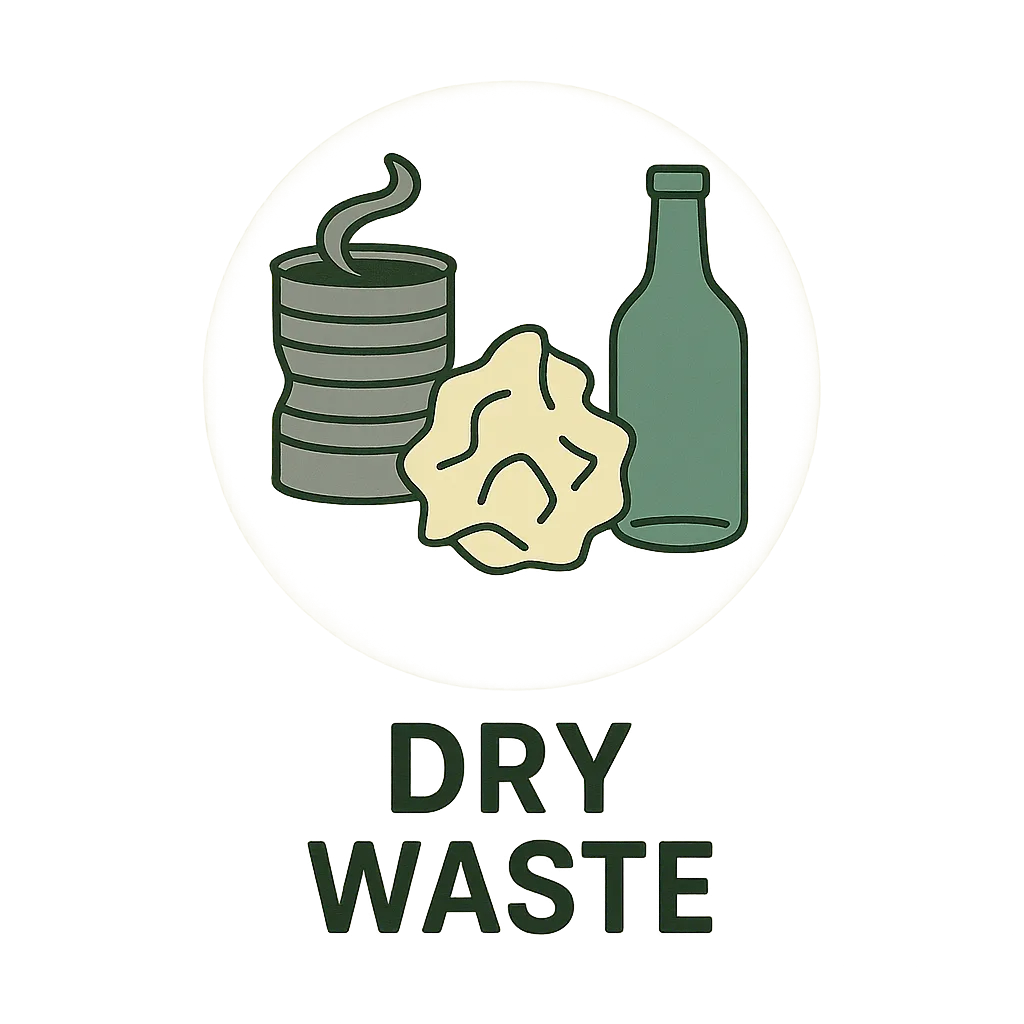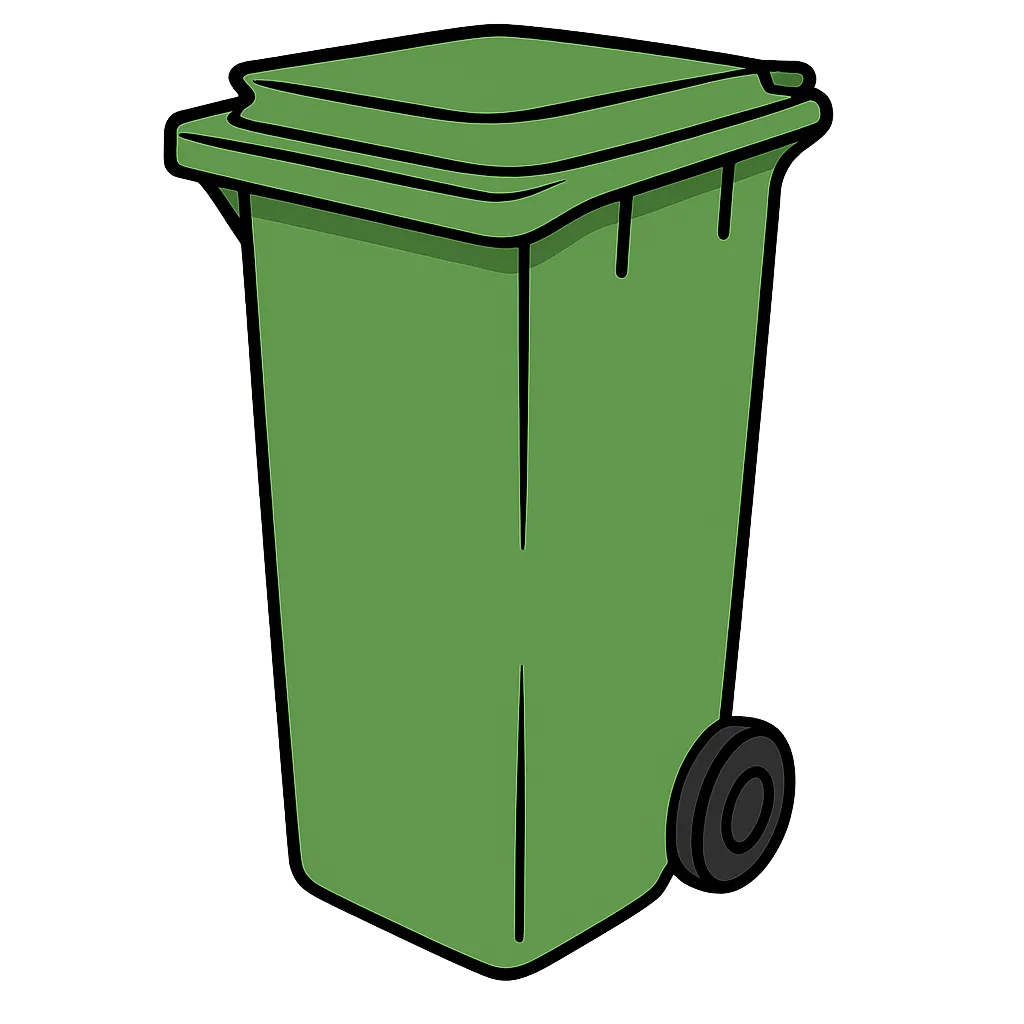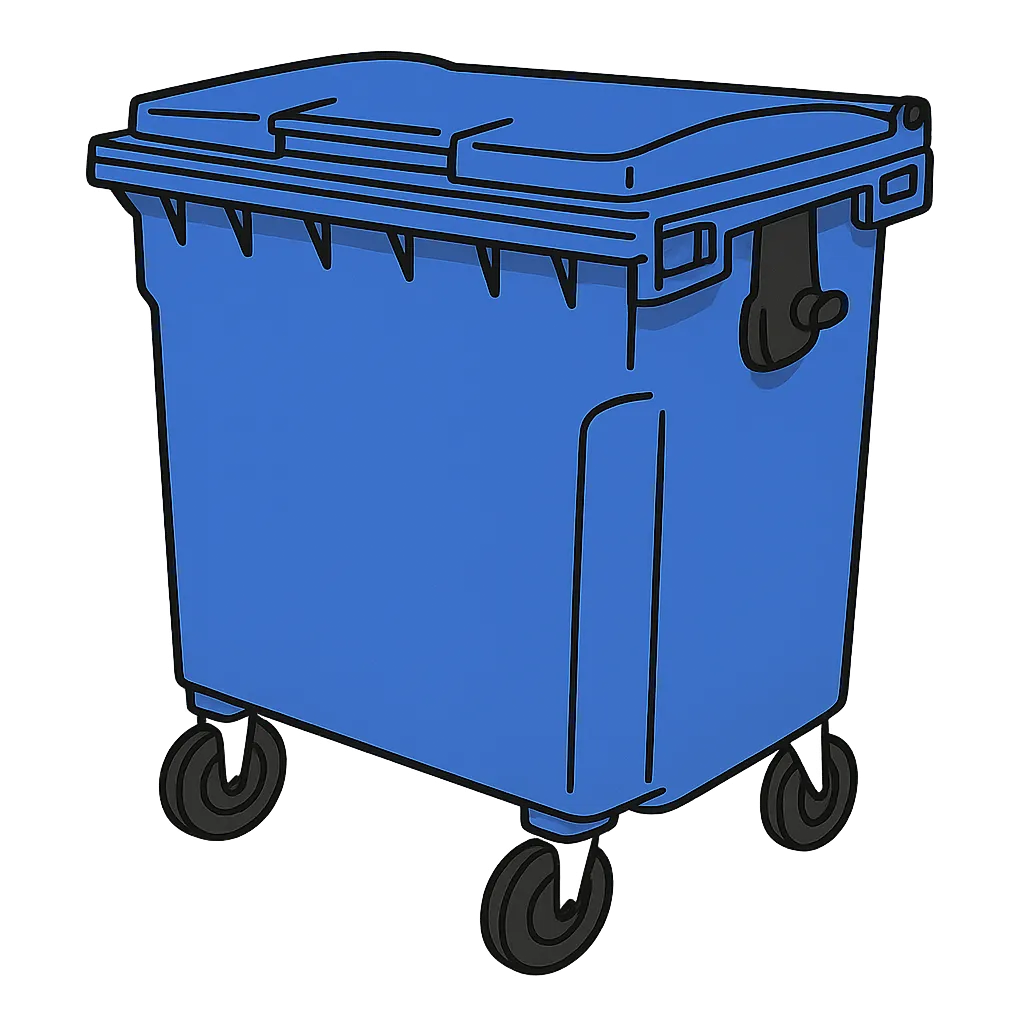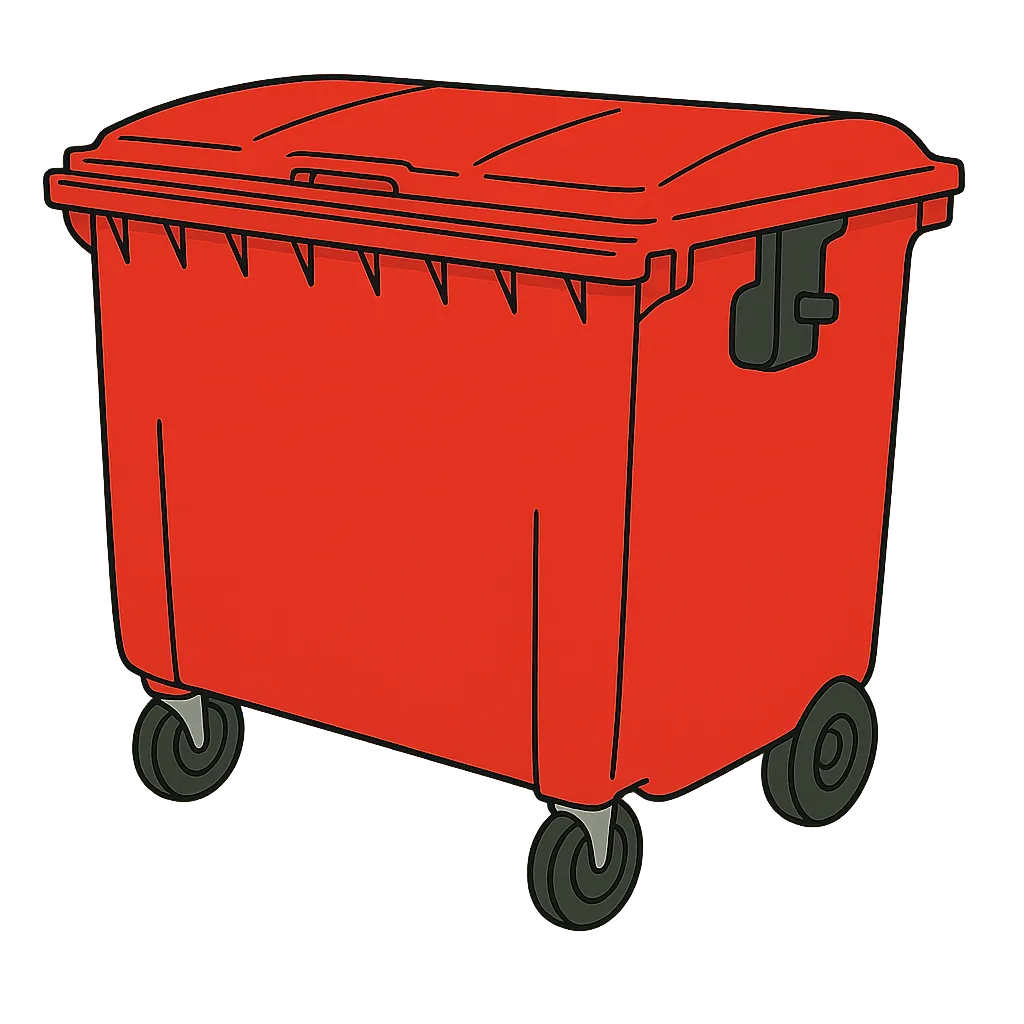Dry Waste Collection Services
Specialized collection for recyclable dry waste materials across Adelaide
Efficient Dry Waste Management
Our dry waste collection service provides an efficient solution for managing recyclable materials that aren't organic or paper-based. This specialized service helps businesses and households properly sort and dispose of recyclable materials like plastics, glass, and metals.
By separating dry recyclables from general waste, you're making a significant contribution to reducing landfill usage and promoting the circular economy. Our service ensures these valuable materials are directed to the appropriate recycling facilities.
What can go in your dry waste bin:
- Clean plastic containers and bottles
- Glass bottles and jars
- Aluminum and steel cans
- Clean food packaging
- Metal items (non-hazardous)
- Hard plastics

Benefits of Dry Waste Recycling
Why separating dry recyclables matters
Resource Conservation
Recycling dry waste conserves valuable resources by reusing materials like plastics, glass, and metals instead of extracting new raw materials.
Reduced Landfill Usage
Diverting recyclable materials from landfill significantly reduces waste volume and extends the lifespan of existing landfill facilities.
Lower Carbon Footprint
Manufacturing products from recycled materials typically requires less energy than using virgin resources, reducing greenhouse gas emissions.
Accepted Dry Waste Materials
Materials We Accept
- Clean plastic containers and bottles
- Glass bottles and jars
- Aluminum and steel cans
- Clean food packaging
- Metal items (non-hazardous)
- Hard plastics
- Clean foil and trays
- Empty aerosol cans
Materials We Do Not Accept
- Food waste
- Garden waste
- Liquids of any kind
- Hazardous materials
- Batteries and electronic waste
- Medical waste
- Soft plastics and plastic bags
- Polystyrene foam
Not sure if your dry waste waste is acceptable? Contact our team for clarification.
Available Bin Sizes
Choose the perfect bin size for your dry waste recycling needs
Note: 360L bins are not available for dry waste recycling due to weight and capacity constraints.
Flexible Collection Schedules
Choose a collection frequency that suits your recycling volume
Weekly Collection
Ideal for businesses with high volumes of recyclable materials, such as restaurants or retail stores.
Benefits:
- • Prevents overflow
- • Maintains workplace tidiness
- • Consistent service
- • Best for high-volume producers
Fortnightly Collection
Our most popular option for medium-sized businesses with moderate recyclable waste.
Benefits:
- • Cost-effective solution
- • Sufficient for most businesses
- • Reduces carbon footprint
- • Balanced service schedule
Monthly Collection
Economical option for small businesses or those with minimal recyclable waste.
Benefits:
- • Most economical choice
- • Ideal for low-volume waste
- • Minimal service disruption
- • Flexible scheduling
Ready to start recycling?
Use our calculator to get an instant quote for your dry waste recycling service.
Our transparent pricing ensures you know exactly what you're paying for.
Explore Our Other Services
Comprehensive waste management solutions for all your needs
Frequently Asked Questions
Common questions about our dry waste recycling service
Do I need to clean recyclable containers before placing them in the dry waste bin?
Yes, containers should be rinsed to remove food residue. They don't need to be spotless, but removing excess food helps prevent contamination and odors.
Can I place plastic bags in the dry waste bin?
Most plastic bags are not suitable for dry waste recycling. We recommend using reusable bags or taking plastic bags to supermarket collection points specifically designed for soft plastics.
What happens to the dry waste after collection?
After collection, dry waste is transported to a materials recovery facility where it's sorted into different material types (plastics, glass, metals, etc.). These materials are then processed and sold to manufacturers who use them to create new products.
Are there any common items that people mistakenly put in dry waste bins?
Common mistakes include food waste, garden waste, hazardous materials, electronic waste, batteries, and liquids. These items can contaminate recyclable materials and should be disposed of through appropriate channels.
How much does dry waste collection cost in Adelaide?
Our dry waste collection prices start from $35.75 for a 240L bin with weekly collection. For accurate pricing based on your specific requirements, please use our online calculator or contact our team.


